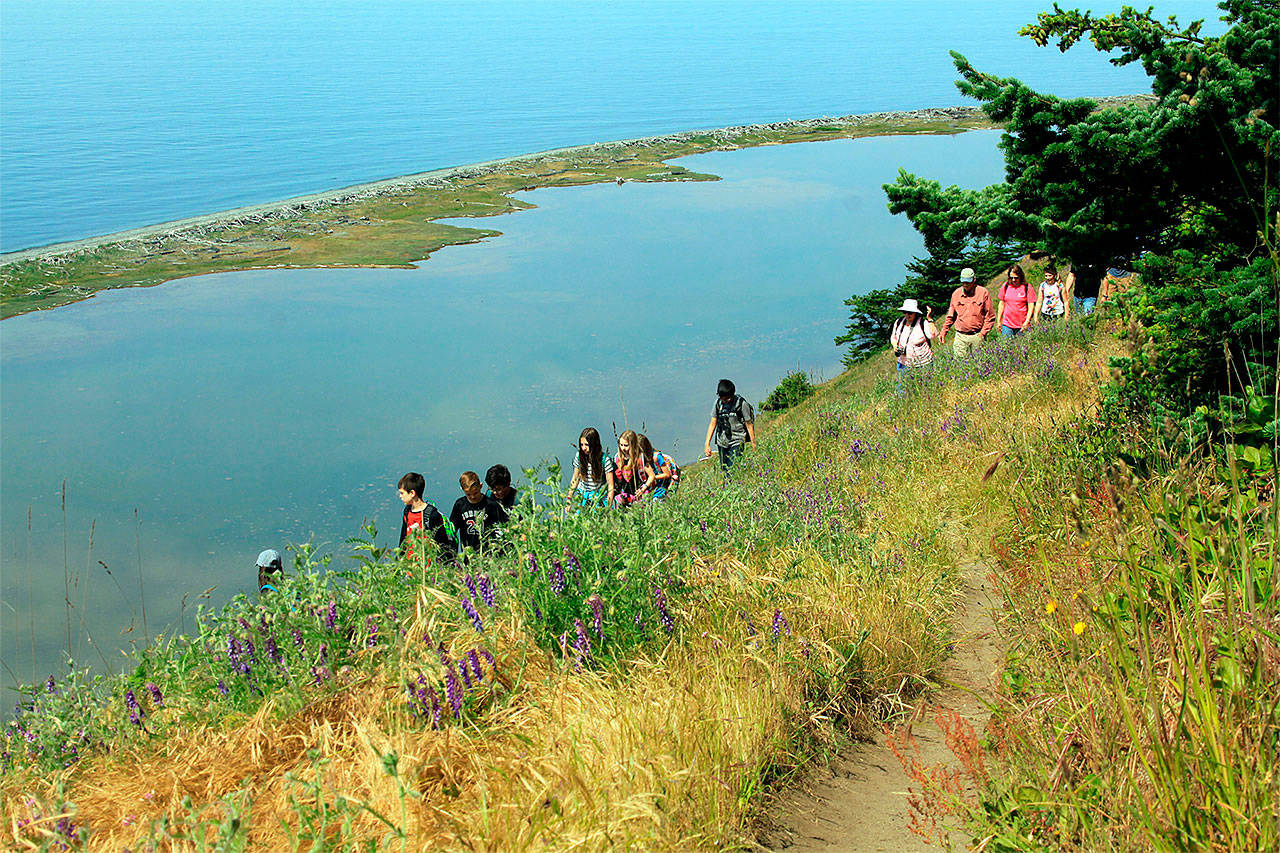By The Herald Editorial Board
A federal program that helps acquire and develop parks and other public lands for recreation and preservation — from neighborhoods to wilderness — is at risk of losing its funding authorization for the second time in three years if not renewed by Congress before the end of September.
Since 1965, the Land and Water Conservation Fund, a legacy of Everett’s Sen. Henry M. “Scoop” Jackson, has safeguarded natural areas and water resources, protected cultural heritage sites and provided recreation opportunities in all 50 states. And it does so without taxpayer support. The fund is nearly fully funded by royalties from offshore oil drilling.
About $900 million from those royalties goes into the fund’s account, although Congress has rarely appropriated that full amount for its intended use, reallocating it for other purposes. Even so, in its more than 50 years, the LWCF has protected 7 million acres and funded $16.8 billion in parks and other projects throughout the nation, including more than $675 million in Washington state.
Among projects in Washington state, the fund has provided funding for projects at the Rainier, Olympic and North Cascades national parks and at trails throughout the state, including about $25 million over the last 15 years at the Pacific Crest Trail, protecting more than 18,000 acres.
Along with recreation, the fund also preserves working forests and family farmland. At the base of Mount St. Helens, the fund, joined by support from the state Department of Natural Resources, the U.S. Forest Service and a timber company, has protected more than 20,000 acres of working timberland and habitat were preserved.
Closer to home, the fund has provided:
Preservation of 165 acres of historic farmland at Ebey’s Landing National Historic Reserve on Whidbey Island.
A $500,000 grant, paired with $1.8 million in matching funds, to purchase property for Bothell’s North Creek Forest, a 63-acre forestland oasis surrounded by growing residential development.
A $121,000 grant, matched by $163,000 in local funding, for the Trillium Community Forest trailheads on Whidbey Island.
Those and other projects have helped support a $26.2 billion outdoor recreation industry in the state that sustains about 201,000 jobs, $7.6 billion in annual wages and $2.3 billion in local and state taxes each year, according to a 2015 report prepared for the state Recreation and Conservation Office. Nationally, the recreation industry generates $887 billion in consumer spending and supports 7.6 million jobs.
After 50 years of routine reauthorization by Congress, the LWCF expired briefly in 2015, but was renewed for three years. That three years is up Sept. 30.
A bipartisan coalition in the Senate launched a 100-day campaign last week to win passage of legislation, introduced last year by Sen. Maria Cantwell, D-Washington and Sen. Richard Burr, R-North Carolina, that would reauthorize the fund and do so permanently. Companion legislation also was introduced last year in the House and has the support of the state’s Democratic representatives, including Reps. Suzan DelBene and Rick Larsen, as well as Republican Rep. Dave Reichert.
At a time when the Trump administration has sought to scale back national monuments and end protections for other refuges and marine areas the work of the fund has only grown in importance as development reaches into wilderness and our population puts an increasing demand on existing parks and public lands.
Those who spend anytime in the outdoors — whether we hike, hunt, fish, walk beaches, watch birds, camp, picnic, bike or simply breathe in the clean air of a park — have benefited from the LWCF.
You can show your appreciation by urging your members of Congress to support the funds’ permanent reauthorization and by making it clear to congressional candidates that voters support the LWCF.
Talk to us
> Give us your news tips.
> Send us a letter to the editor.
> More Herald contact information.

























